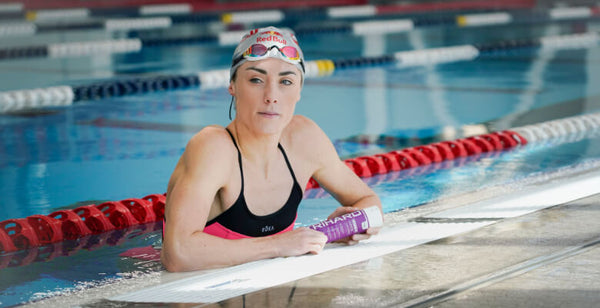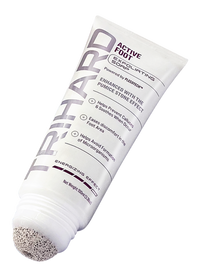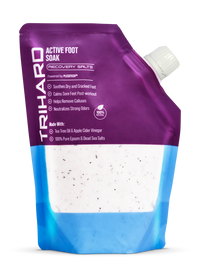Are chlorine pools safe? Here's everything you need to know
In pools around the world, chlorine or bromine are used to sanitize the water. These chemicals are excellent bleaches which kill bacteria, viruses, and microbes.
However, there are a few things you should know about what happens to your hair and skin when it comes into contact with chlorine.
Let's get started.
Are chlorine pools safe?

Generally speaking, swimming in a chlorinated pool is safe. However, the pool needs to be properly maintained so it’s not harmful. Having said that, frequent and/or long exposure to chlorine has side effects on both our hair and skin.
Effects of chlorine on our hair and skin
Coming into contact with bleaches like chlorine and bromine causes immediate damage to our skin and hair by creating a "Chlorine Cover" layer and stealing the natural oils from our hair and skin, which requires a few days of special treatments to restore the oils lost during the bleaching process.
To give you a better idea of how chlorine can affect your hair and skin, we present the following list:
- Chlorine bonds with hair over time, causing damage, loss of shine, and split ends.
- Chlorine strips the natural oils from your hair, leaving it dry, rough, and damaged.
- Chlorine makes your hair porous and brittle, causing it to break more easily.
- Chlorine dries out the skin and causes irritation and itching.

- Several years of exposure to chlorine can cause premature aging and can greatly affect the health of the skin.
- When exposed to chlorine for long periods of time, it is common to get rashes.
- There is a possibility that chlorine in water may cause chemical reactions that alter its natural color, weaken your hair strands, and cause split ends. Chlorine does not cause the change in hair color, however. It's because chlorine has oxidized copper in the water. Copper oxidation is then absorbed by your hair, giving it a greenish hue.
- In cases where a person has eczema, dermatitis, or psoriasis, it can exacerbate their conditions.
How to protect your skin and hair from chlorine
- Use a pre and post-swim body lotions like Trihard's Pre & Post Swim Body Lotion to create a protective barrier around your skin and neutralize the absorption of pool and ocean chemicals.
- You can use a swimmer's face wash, like Trihard’s Swim & Sun Facial Wash, to gently remove pool chemicals and/or saltwater from your face, hydrate your skin, and soothe dry and itchy skin.

- Use an after-swim body wash. With an after-swim body wash such as Trihard's After-Swim Body Wash, you can thoroughly cleanse your skin of pool chemicals and saltwater.
- Restore hair's moisture after swimming in chlorinated water by using a post-swim conditioner. A conditioner like Trihard's Pre and Post-Swim Conditioner also hydrates and moisturizes dry hair and skin after swimming, relieves itchy scalp and skin after swimming, and removes the unpleasant pool smell.
- Use a specialized shampoo like Trihard's swimmers shampoo to completely remove chlorine from your hair and scalp.
Is it safe to swim in a pool without chlorine?
For the most part, swimming in a pool without chlorine would probably not pose any major health risks. A pool without chlorinated water can, however, lead to the following problems:
If the swimming pool is poorly maintained and we swim in it, we can get a chlorine rash. Chlorine rash (or hot tub rash) happens when contaminated water remains on the skin for a long time. The result is a rash called pseudomonas/folliculitis.
Chlorine rash usually appears a few days after sitting in a poorly maintained hot tub or spa, but it can also appear a few days after swimming in a poorly maintained pool or lake.

A poorly maintained pool can also lead to swimmer's itch.
Swimmer's Itch is a parasitic skin rash caused by an allergic reaction to some microscopic parasites that infect some birds and mammals. These parasites are released into water by infected snails (both fresh and salt water, but it is more common in freshwater habitats).
Safe chlorine levels in pools
Water is treated with chlorine to kill germs, but it does not work immediately. Most germs can be killed by free chlorine within a few minutes if used properly. According to the CDC…
- Pools should have a pH of 7.2–7.8
- Pools should maintain free chlorine levels continuously between 1–3 ppm.
- Hot tubs and spas should have free chlorine concentrations of at least 3 ppm.






























Lascia un commento